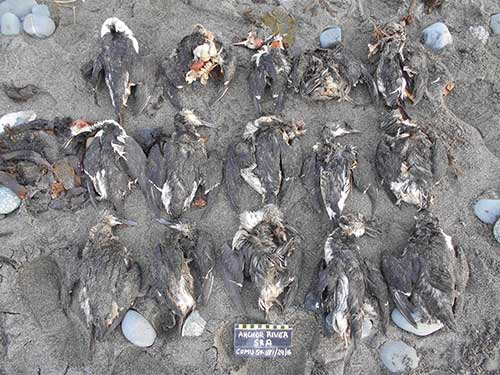



















 Contact Contact 
 Webmail
Letters Webmail
Letters
 News Tips News Tips
 Copyright Info Copyright Info
 Archives Archives
Quick News
Search
 Alaska Alaska
 Ketchikan Ketchikan
 SE Alaska SE Alaska
Columns
- Articles
 Dave Kiffer Dave Kiffer
 Money Matters Money Matters
Historical
Ketchikan
 June Allen June Allen
 Dave
Kiffer Dave
Kiffer
 Louise
B. Harrington Louise
B. Harrington
Sports
 Ketchikan Links Ketchikan Links
Public Records
 FAA Accident Reports FAA Accident Reports
 NTSB
Accident Reports NTSB
Accident Reports
 Court Calendar Court Calendar
 Recent Filings & Case Dispositions Recent Filings & Case Dispositions
 Court Records Search Court Records Search
 Sex Offender Reg. Sex Offender Reg.
 Public Notices Public Notices
 Alaska Recall Alerts Alaska Recall Alerts
 Recalls.gov Recalls.gov
 AST Daily Dispatch AST Daily Dispatch
 KTN
Police Reports KTN
Police Reports
 Juneau Police Reports Juneau Police Reports
Weather,
Webcams
 Today's
Forecast Today's
Forecast
 KTN
Weather Data KTN
Weather Data
 AK
Weather Map AK
Weather Map
 AK Weathercams AK Weathercams
 AK Earthquakes AK Earthquakes

|
|

Wednesday
January 15, 2020

|
Sitka Black-tailed Deer
These deer found the photographer's cherry tree branches a welcomed treat during these freezing weather conditions.
Front Page Feature Photo By SUSAN HOYT ©2020
To have your photo featured on the front page,
email your photo(s) to editor@sitnews.us
|
| |
|
Alaska: Draft AMHS Economic Reshaping Report Released to the Public Edited By MARY KAUFFMAN - Today, the Alaska Department of Transportation & Public Facilities (DOT&PF) released the draft Alaska Marine Highway System (AMHS) Economic Reshaping Report to the public. The report was prepared by Northern Economics.
The 106 page draft report sought to identify potential reductions to the State of Alaska’s financial obligation and/or liability as related to the Alaska Marine Highway System. Findings from the report will be used to shape future AMHS conversations, starting with the FY2021 budget. The report will remain in draft status as these conversations continue.
The report was first delivered by Northern Economics to the Alaska Department of Transportation on Oct. 15, 2019. According to the Alaska Dept. of Transportation, due to the volume of data and complexity of the issues, the department and Northern Economics worked together to verify accuracy. A copy of the report was provided to the Marine Transportation Advisory Board (MTAB) for review and comment. The report was discussed by Marine Transportation Advisory Board its meeting held in Anchorage today.
The draft report released to the public today provides a detailed analysis of the financial impact of several options for reshaping the Alaska Marine Highway System (AMHS). This study was undertaken to support the Alaska Department of Transportation & Public Facilities in identifying potential reductions of the state’s financial obligation and liability as it pertains to AMHS.
In February 2019, Governor Dunleavy unveiled his proposed budget based on five tenets (Office of Governor Michael J. Dunleavy 2019b):
- Expenditures cannot exceed existing revenue;
- The budget is built on core functions that impact a majority of Alaskans;
- Maintaining and protecting reserves;
- The budget does not take additional funds from Alaskans through taxes or the PFD;
- It must be sustainable, predictable and affordable.
The Governor’s budget summary (Office of Governor Michael J. Dunleavy 2019a) highlighted AMHS’s position and the need for this study: The Department of Transportation & Public Facilities currently has 10 ferries serving 35 ports in Alaska, Prince Rupert, B.C., and Bellingham, WA. The AMHS is heavily subsidized by State of Alaska General Funds; its fare box recovery rate in FY2018 was 33.3%. Ridership is trending down; 2018 passenger capacity was 42.6% and vehicle capacity was 51.6%. The department will work with a marine consultant to investigate options available for moving the AMHS towards privatized service or service provided by public/private partnership, with the intent of reducing the State’s financial obligation and/or liability. For example, there may be routes where a smaller vessel could provide more reliable and less costly transportation services.
Though the budget statement that led to this study highlights a public/private partnership as one option for addressing AMHS’s financial challenges, the scope of the study is much broader. It provides an analysis of eleven options for changes to the system, relying on extensive data analysis, community and industry interviews, past studies, and quantitative modeling.
The scope of work for the study specified 11 options, as described below. This text for each option was derived from a combination of RFP and contract language early in the project.
01. Reshape the entire AMHS operation by selling or giving all vessels and terminals to a private entity to run whatever service they can justify economically.
02. Reshape parts of the AMHS by selling or giving some vessels and terminals for the specific purpose of providing service to certain communities, for example communities that are not on the National Highway System (NHS).
03. Transfer AMHS assets to a public corporation that would provide service based on a fixed or zero General Fund amount. The corporation board would set service levels, fares, and employee pay.
04. Lease vessels and terminals to a private entity, public corporation or non-profit entity to run as a for-profit business with the state responsible only for vessel and terminal overhaul and refurbishment. - More...
Wednesday PM - January 15, 2020
|
Alaska - National: Trump Signs Landmark Phase 1 Deal with China; Positive news for Alaska Fishermen says Sullivan By MARY KAUFFMAN - In a historic moment, President Donald Trump was joined today by the Vice Premier of China Cui Tiankai in the East Room of the White House. Together, they signed a new, fully enforceable trade agreement that rebalances this vital trade partnership while boosting American businesses, farmers, manufacturers, and innovators.
“From day one, my Administration has fought tirelessly to achieve a level playing field for the American worker,” President Trump said. Before he took office, Washington had long tolerated unfair trade practices that buoyed special interests while hurting U.S. working- and middle-class families.
“For years, politicians ran for office promising action to remedy these practices, only to do nothing but allow them to continue,” the President said this morning. “Unlike those who came before me, I kept my promise . . . Now, our efforts have yielded a transformative deal that will bring tremendous benefits to both countries.”
The new agreement makes good on a number of key promises to fix trade with China, including but not limited to:
- American-made products: To help rebalance the relationship, China has pledged to increase imports of American goods and services by at least $200 billion.
- Agriculture purchases: As part of that commitment, China will be stocking up on goods from U.S. farmers - between $40 and $50 billion worth.
- No more forced technology transfers: For the first time ever, China agreed to end its practice of forcing American companies to transfer their technology to Chinese companies as a condition for doing business there.
- Fair currency practices: Beijing has agreed to stronger commitments on its practices regarding currency devaluations and exchange rates.
- Fully enforceable: Reforms included in the agreement are fully enforceable and include a strong dispute resolution system to ensure effective implementation and enforcement.
- Intellectual Property Rights: China will address numerous longstanding intellectual property concerns in the areas of trade secrets, trademarks, enforcement against pirated and counterfeit goods, and more.
In phase one of the agreement, China has made a commitment to purchase Alaska seafood at levels significantly exceeding the country’s historic purchases and will be a welcome boon to a vital Alaska industry that has been caught in the middle of the ongoing trade negotiations. China is Alaska’s largest trading partner.
And this is just phase one. The work on a phase-two deal is already underway.
“With this signing, we mark more than just an agreement. We mark a sea change in international trade. At long last, Americans have a government that puts them first at the negotiating table,” President Trump said. - More...
Wednesday PM - January 15, 2020 |
|
Alaska: Alaska Reads Act: Comprehensive Statewide K-3 Reading Program Unveiled Edited By MARY KAUFFMAN - Today, Alaska Governor Mike Dunleavy held a press conference at Anchorage's Turnagain Elementary School unveiling the Alaska Reads Act, legislation that will create a comprehensive statewide K-3 reading program designed to improve reading outcomes. The Alaska Reads Act is focused on enhancing interventions for struggling readers and offering targeted school-improvement in the state’s lowest performing schools.
A person’s ability to read is a critical predictor of educational and lifelong success. A strong reading program, beginning in kindergarten and continuing into the third grade and beyond, gives students the best possible chance to maximize their education. Before third grade, students are learning to read. Beginning in fourth grade and beyond, a student must be prepared to read to learn across all subject areas.
“For the second year in a row, Alaska’s students ranked last out of all 50 states in grade four reading performance. In 2019, only 37% of Alaska’s grade three students were proficient in reading on the statewide summative assessment. Alaska is facing a reading crisis and we must insist on better educational outcomes for our children. Today marks a concerted effort, with bipartisan support, to provide our children with the best possible education by offering every opportunity to succeed in reading – a fundamental building block in every child’s education,” said Governor Mike Dunleavy.
Dunleavy said, “As a former teacher, principal, and superintendent, I have seen the many ways in which our schools shape our children’s lives, as well as the challenges our educators face. Alaska has bright spots and high performing schools, but there are also areas that need improvement—specifically reading. Our delivery of education services must be improved to ensure bright futures for all of Alaska’s children, and reading is the cornerstone.”
“By working together, Governor Dunleavy and Senator Begich have demonstrated that the importance of reading transcends political party. I am grateful for the character and dedication they have invested on behalf of Alaska's students,” said Alaska Education Commissioner Dr. Michael Johnson. “Ensuring students read proficiently by the end of third grade was identified as a top priority by the State Board of Education and Alaskan stakeholders in the Alaska’s Education Challenge. The Alaska Reads Acts translates that priority into policy. I look forward to working with all Alaskans, including our dedicated educators, to effectively implement the Alaska Reads Act.”
Alaska Senator Tom Begich (D-Anchorage) said, “The Governor and I have been working together to craft legislation that will provide our youngest Alaskans with an opportunity to succeed. We are still working on some provisions of the bill, but I believe that together we can develop a comprehensive early learning and reading policy that supports kids, and moves Alaska forward. Strong, quality, voluntary, universal pre-K with support through effective reading instruction in later grades is critical for Alaska’s youth.”
Begich said, “Some things are more important than our political differences, and the ability to educate our children is one of those things."
“This is a moral imperative for all Alaskans regardless of politics,” said Governor Dunleavy. |
|
Results from the 2017 and 2019 National Assessment of Educational Progress (NAEP) rank Alaska as the lowest performing state in grade four reading, with only 25 percent of students performing at or above the proficient level in 2019. Alaska scored below the national average in grade four reading on NAEP for every year the test was administered since 2003. The Performance Evaluation for Alaska’s Schools (PEAKS), Alaska’s summative assessment further showed that over 60 percent of grade three students scored below or far below proficient in English language arts between 2017 and 2019.
Governor Dunleavy, along with Commissioner Johnson and members of the Alaska State Legislature, have committed to addressing a pathway forward with a focus on measurable goals to increase student performance. The Alaska Reads Act addresses the need for high quality statewide early learning and reading programs to provide opportunities for lifelong success.
Alaska Children’s Caucus co-chair Rep. Chris Tuck (D-Anchorage) said in a prepared statement, “There are a lot of issues that divide the members of the Alaska Legislature, but the one issue that brings everyone together is the education of our children," Representative Tuck said. “The research is clear that student achievement is directly linked to reading ability, especially in the first four years of school. The Alaska Reads Act is a good bill that will help students, which is why it has bipartisan support, including from me. I want to thank Senator Begich and Governor Dunleavy for their work on this important legislation, which the Alaska Children’s Caucus will thoroughly review.”
Alaska Senate President Cathy Giessel (R-Fairbanks) also released a prepared statement on the Alaska Reads Act, saying, “Childhood literacy is not a partisan issue. It's critical to the strength of our economy, the health of our communities and the endurance of our democracy. I believe this effort – spearheaded by Senator Begich and Governor Dunleavy – will make tremendous strides toward achieving universal literacy, a goal we all share as Alaskans.” - More...
Wednesday PM - January 15, 2020
|
|
Alaska: 'The blob,' food supply squeeze to blame for largest seabird die-off - The common murre is a self-sufficient, resilient bird.
Though the seabird must eat about half of its body weight in prey each day, common murres are experts at catching the small "forage fish" they need to survive. Herring, sardines, anchovies and even juvenile salmon are no match for a hungry murre.
So when nearly one million common murres died at sea and washed ashore from California to Alaska in 2015 and 2016, it was unprecedented -- both for murres, and across all bird species worldwide. Scientists from the University of Washington, the U.S. Geological Survey and others blame an unexpected squeeze on the ecosystem's food supply, brought on by a severe and long-lasting marine heat wave known as "the blob."
Their findings were published Jan. 15 in the journal PLOS ONE.
"Think of it as a run on the grocery stores at the same time that the delivery trucks to the stores stopped coming so often," explained second author Julia Parrish, a UW professor in the School of Aquatic and Fishery Sciences. "We believe that the smoking gun for common murres -- beyond the marine heat wave itself -- was an ecosystem squeeze: fewer forage fish and smaller prey in general, at the same time that competition from big fish predators like walleye, pollock and Pacific cod greatly increased."
Common murres nest in colonies along cliffs and rocky ledges overlooking the ocean. The adult birds, about one foot in length, are mostly black with white bellies, and can dive more than two football fields below the ocean's surface in search of prey.
Warmer surface water temperatures off the Pacific coast -- a phenomenon known as "the blob" -- first occurred in the fall and winter of 2013, and persisted through 2014 and 2015. Warming increased with the arrival of a powerful El Niño in 2015-2016. A number of other species experienced mass die-offs during this period, including tufted puffins, Cassin's auklets, sea lions and baleen whales. But the common murre die-off was by far the largest any way you measure it.
From May 2015 to April 2016, about 62,000 murre carcasses were found on beaches from central California north through Alaska. Citizen scientists in Alaska monitoring long-term sites counted numbers that reached 1,000 times more than normal for their beaches. Scientists estimate that the actual number of deaths was likely close to one million, since only a fraction of birds that die will wash to shore, and only a fraction of those will be in places that people can access.
Many of the birds that died were breeding-age adults. With massive shifts in food availability, murre breeding colonies across the entire region failed to produce chicks for the years during and after the marine heat wave event, the authors found. - More...
Wednesday PM - January 15, 2020
|
|
Analysis: Russia's cabinet resigns and it's all part of Putin's plan By REGINA SMYTH - Russia’s prime minister, Dmitry A. Medvedev, and cabinet resigned on Jan. 15.
Russian politics are often not what they seem, especially to those in the West. Regina Smyth, a Russia scholar at Indiana University, would like to help readers understand what’s going on.
1. What just happened?
Russian President Vladimir Putin, who has been in power for 20 years and faces term limits in 2024, has begun his effort to consolidate control and maintain his hold on power after the next elections. The cabinet and prime minister’s resignations are part of that effort.
Putin wants his majority in the parliament – the State Duma – to pass constitutional amendments that will allow him to remain in political control.
This move is not unexpected, at least among Kremlin watchers and scholars like me who have studied Russian elections over 30 years. Putin signaled the change in his annual press conference in December, where he spoke about the potential for constitutional reforms.
On Jan. 15, Putin gave his annual state of the nation address and unveiled “serious changes to the political system.” In response to the proposed constitutional amendments, which Putin is promoting as “reforms,” Prime Minister Medvedev and his government resigned.
This move should not be seen as protest, although it might be useful for Medvedev, a longtime ally of Putin’s, to feign independence and appear as if he made the move in dissent. He and Putin orchestrated similar actions in 2008 and again in 2011.
The goal of Putin and his allies is to forestall popular protest among those tired of Putin’s long reign.
Putin’s proposal to redefine the separation of power between the Duma, presidency and prime minister would allow parliament to select the prime minister, a power now in the hands of the president. Together with an agreement to impose strict two-term limits on future presidents, this change suggests that Putin will leave the presidency.
Future presidents would retain control of the security forces and the military but must consult the State Council.
The proposal is being touted in leading Russian newspapers as “democratic reform.” In fact, while appearing to redistribute power among the high-level players in the Kremlin, the details that will determine power relations remain vague.
On Monday, Putin’s spokesman stated that specifics will be developed in consultation with the Russian people. Given regime controls over voting and national campaigns, this nod to the people is a form of window dressing.
In making these changes and accepting the government’s resignation, President Putin is laying the groundwork for several paths to retain power, including as prime minister or head of a strengthened State Council, an advisory body to the president.
Putin’s proxies are already arguing that these reforms will prevent political crisis in 2024 and increase living standards. - More...
Wednesday PM - January 15, 2020
|
PETER FUNT: Debate Fatigue - Tuesday’s event was supposed to be the big one, the final showdown before actual voting begins. If, like me, you’ve watched every minute of every Democratic debate so far – and here’s wishing we’d all get a life – you know the unfortunate truths:
– The candidates are what they have become. There’s not a scintilla of insight regarding the front-runners that wasn’t clear after the first debate last June.
The Democrats’ debate performance looks increasingly like a traveling road show – meant to be sampled by curious crowds at each stop, but not by the same TV audience over and over. The actors know their lines. They’ve polished and trimmed. A few players have left the cast and one new billionaire recently stepped in, but for the most part it’s a pat performance.
– The basic format is fine for one or two debates, but it doesn’t deliver month after month. The Democratic National Committee has fixated on the rules for qualifying but ignored the need for alternative formats.
A single-topic debate was considered but rejected by the DNC. Other changes have been floated – including a few by me in this space – but party leaders won’t budge. That’s unfortunate because voters would benefit by seeing if these candidates can go off-script, if they can sing as well as dance.
– Aggression pleases commentators but not voters. After earlier debates there was a lot of pundit-speak about who delivered meaningful blows and who was able “to take a punch.” It’s an ugly way of describing Democratic politics, plus it doesn’t work. The hardest hitter, California Sen. Kamala Harris, has quit the race. Hawaii Rep. Tulsi Gabbard was another early aggressor, as was former New York City Mayor Bill de Blasio. He’s out and she’s fading away.
The four front-runners wisely mind their manners. Former Vice President Joe Biden saves his aggression for the end of each debate when he bellows at the audience, “This is America!” (Sounds like Eddie Murphy, “I’m Gumby, damn it!) Massachusetts Sen. Elizabeth Warren lets facts, figures and a plethora of plans do her talking. Former South Bend Mayor Pete Buttigieg is an articulate choir boy. Only Vermont Sen. Bernie Sanders is a bit gruff – but he’s not nasty. He’s more like a lovable uncle.
– Defeating Trump is important, dwelling on how is not. The most overworked and bankrupt line of questioning in each debate is some variation of “Why are you the best candidate to beat Trump?” The answer, to the extent there is one, will be found in the sum of everything said in all debates, on the campaign trail and, ultimately, at the polls. But there is no way whatsoever to meaningfully address the question in a single debate-stage statement.
Yet, the question keeps getting asked. It forces Buttigieg to remind us he’s a Midwesterner who served in Afghanistan; Biden to note that he’s experienced and sat at Obama’s side; Warren to point out that she and Klobuchar have won every election they’ve been in; Sanders to restate the need for sweeping social and political change. Truth is, they can each beat Trump but only one will get to show us how it’s done. - More...
Wednesday PM - January 15, 2020 |

Political Cartoon: Bernie and Warren
By Rick McKee ©2020, CagleCartoons.com
Distributed to paid subscribers for publication by Cagle Cartoons, Inc. |
Think for yourself By Mike Holman - "No man ever steps in the same river twice." Heraclitus of Ephesus (c. 500 BC) Heraclitus was known for using riddles to provoke his listeners into thinking for themselves. Plato later explained " you cannot step twice into the same stream . . . everything changes and nothing remains still ..."
Ketchikan is changing. When was it not? Fishing, ever important, has had its ups and downs. Timber, the pulp mill, oil, the shipyard, the ferry system . . .
The cruise ships started out small in small numbers. Now they are big, getting bigger and coming in greater numbers. At first the ships were greeted. Now, not so much.
Through it all Ketchikan has prospered. It enjoys services and amenities far beyond other towns our size. For a time oil paid the bill. Now what? We did not pay for all these things in cash. There is a mortgage with payments due for years to come.
Fishermen cannot bear this burden alone. It is a debt which must be borne by those who are still working. Who will employ them? Where will the money come from?
Ketchikan is now more dependent on the ships than it wants or should be. Bemoan and deny it at your peril. The ships did not create all this debt but some demand they must pay for it nonetheless. Must they? It’s not their house. They live in a motor home and find work traveling from place to place. As long as the pay is good they will stay. When it’s not they will move on and maybe build a home or two of their own somewhere else. Then what? Back to timber, oil, or maybe a big mine at Quartz Hill or Bokan Mountain? Will it be enough? - More...
Thursday AM - January 16, 2020
 |
Let’s Restore Alaska’s Tradition of Open Primary Elections By Sen. Lesil McGuire & Jeremy Gruber - In 1947, with Alaska well on the road to statehood, voters overwhelmingly adopted a blanket open primary by referendum. They confirmed the beliefs that every Alaskan deserves the right to vote and choose among every candidate, and that politicians are accountable directly to the people, not the parties.
When partisans pushed to enact closed primaries in the early nineties, the Alaska State Legislature responded with a bipartisan resolution in support of open primaries, stating:
WHEREAS Alaskans have a proud tradition of freedom and independence and reflect that tradition in the manner in which they exercise their franchise; and whereas in excess of 55 percent of all registered voters in Alaska have chosen not to affiliate with an organized political party; and whereas this tradition is reflected in the open primary system; and whereas among the stated goals of closing primaries are strengthening parties and providing greater party discipline, both of which run counter to Alaska voting traditions.
The blanket open primary system worked. It was popular. Every Alaskan had equal voting rights and could vote for the candidates of their choice, regardless of party. It was a central feature of Alaskan politics for over 50 years and when partisans attempted to invalidate it in the courts, the system was affirmed by the Alaska Supreme Court in O'Callaghan v. Alaska, aptly stating that:
In Alaska, where a majority of voters are not affiliated with any party, a closed or partially-closed primary system can plausibly be viewed as bestowing on a minority of the electorate a disproportionately powerful role in the selection of public
officeholders. If political parties and politically affiliated voters are to have more power in the election process that is power taken from unaffiliated voters. - More...
Thursday AM - January 16, 2020
 |
Recall 2020: Alaskans scale up to make history By Joe Usibelli Sr., Vic Fischer, Arliss Sturgulewski - Alongside more than 49,000 Alaskans who signed the recall application, we’re celebrating a major development in our historic, bipartisan movement to remove Governor Dunleavy from office. As we expected, the Superior Court has approved our grounds to recall the Governor. This means we now advance to the Petition Phase, or second signature gathering phase, that will allow Alaskans to head to the ballot box and answer one simple question: should Governor Michael J. Dunleavy be recalled?
When we agreed to co-chair Recall Dunleavy, we knew it would be no easy feat. Only two governors have ever been successfully recalled in the history of our country. Fortunately, Alaskans are not deterred by hard work, and our legal grounds have been strong from the start. Deeply committed volunteers across the state will soon have official booklets in hand to start collecting petition signatures from a minimum of 71,252 qualified, registered voters.
Governor Dunleavy’s broken promises, violations of the Constitution and laws, and broadly dangerous policy decisions have shattered Alaskans’ trust. Dunleavy’s severe and irresponsible approach to governing caused tremendous harm to Alaska in 2019 and he would’ve caused much greater harm but for the intervention of the Legislature, which undid many of his most harmful actions. Many Alaskans are only now beginning to suffer the consequences of avoidable yet widespread economic uncertainty and the impacts of proposed policies from a chaotic, troubling first year in office.
As leaders who have dedicated our lives and careers to building Alaska’s economic and legal institutions, we take seriously our commitment to protecting the communities of Alaskans who live here today, along with their children and future generations. - More...
Thursday AM - January 16, 2020
Working both sides By Charlie Freeman - There was a Ketchikan Daily News story recently that reports one council member as saying that, concerning the RFP on the Ports, "what’s wrong with getting more information”, and that led me to wonder just how many Council Members believe that is really all their looking for.
In my experience, information is why you hire a consultant, and that consultant should be acting for you, and you alone. Turns out that neither the information statement, nor the consultant conception are true.
What is true is that the RFP is a flat out business proposal and that our so-called, consultant, by his own public disclosure, is working both sides of the street. - More...
Saturday PM - January 11, 2020
 |
Oversite and management of our docks By Ken Duckett - As a growing number of folks in the greater Ketchikan area are aware, the Ketchikan City Council is considering contracting out the oversite and management of our docks, berths 1 thru 4, to a private company for up to 30 years. I believe the main reason they are considering this is that they see the need to increase the capacity of the individual berths in order to accommodate the new larger cruise ships and to improve some downtown areas to better handle the additional passengers they would bring. These improvements would have a significant cost and the Council doesn’t believe the citizens of Ketchikan would support another bond issue. Frankly, I think they are correct. The visitor industry is a very important part of our economic fabric, but the ever increasing numbers of tourists is threating to, or already has begun to change the quality of life that year-round residents enjoy and value. I oppose the city implementing any such management contract for our port facilities for the following reasons: - More...
Sunday PM - January 05, 2020
Email letters, opinions, OPEDs to editor@sitnews.us
|
Articles &
photographs that appear in SitNews may be protected by copyright
and may not be reprinted or redistributed without written permission
from and payment of required fees to the proper sources.
E-mail your news &
photos to editor@sitnews.us
Photographers choosing to submit photographs for publication to SitNews are in doing so, granting their permission for publication and for archiving. SitNews does not sell photographs. All requests for purchasing a photograph will be emailed to the photographer.
|
|















The Local Paper is
available online.
Click here for this week's printed edition (PDF)


|
|


![]() Contact
Contact ![]()
![]() Webmail
Letters
Webmail
Letters![]()
![]() News Tips
News Tips![]()
![]() Copyright Info
Copyright Info![]() Archives
Archives![]() Alaska
Alaska![]() Ketchikan
Ketchikan![]() SE Alaska
SE Alaska![]() Dave Kiffer
Dave Kiffer![]() Money Matters
Money Matters ![]() June Allen
June Allen![]() Dave
Kiffer
Dave
Kiffer![]() Louise
B. Harrington
Louise
B. Harrington ![]() Ketchikan Links
Ketchikan Links![]() FAA Accident Reports
FAA Accident Reports ![]() NTSB
Accident Reports
NTSB
Accident Reports![]() Court Calendar
Court Calendar![]() Recent Filings & Case Dispositions
Recent Filings & Case Dispositions ![]() Court Records Search
Court Records Search![]() Sex Offender Reg.
Sex Offender Reg.![]() Public Notices
Public Notices![]() Alaska Recall Alerts
Alaska Recall Alerts![]() Recalls.gov
Recalls.gov![]() AST Daily Dispatch
AST Daily Dispatch![]() KTN
Police Reports
KTN
Police Reports![]() Juneau Police Reports
Juneau Police Reports ![]() Today's
Forecast
Today's
Forecast![]() KTN
Weather Data
KTN
Weather Data![]() AK
Weather Map
AK
Weather Map![]() AK Weathercams
AK Weathercams![]() AK Earthquakes
AK Earthquakes









































